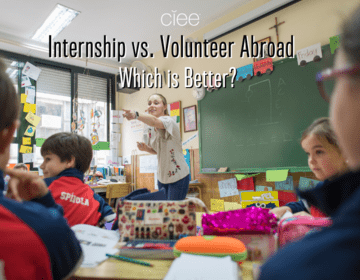The real Botswana!
Blog Post by: Derek Garrison-Bedell from Clark University
Before coming to Gaborone, I didn’t really know what to expect. I had heard from a friend that it was similar to an American suburb, in that there were malls, restaurants, and cars abound, but this notion competed with the schema of most African countries that I, and I presume many Americans, hold when we think about the continent as a whole. When one mentions a country in Africa, I have a picture in my mind of a hot, dry place, where one can find many animals that are only found in zoos in the U.S., and with a lack of most westernized concepts, including stores, cars, major roads, and solid infrastructure. This is the notion we conceive in school and through conversations with peers who have never set foot anywhere in Africa, but from talking to friends who had gone on programs in various parts of Africa, I had an inkling that this was largely untrue, and that many parts were much more developed than most Americans believe.
When riding around Gaborone, it doesn’t feel quite so different from many parts of the U.S. There are many stores, billboards advertising products that are familiar, cars, large buildings, and lots of modern infrastructure. When my friends and I would wander around the malls the first week, I was surprised at how at home and comfortable I felt, surrounded by stores and restaurants that were very familiar to me. I wasn’t altogether surprised, since I knew that much of what we know about Africa is skewed, but seeing the new city made me realize the importance of not casting blanket judgments about places before you get to them. I know that it is one city in one country in a whole continent, but from the conversations I’ve had with many students here, it seems as if most people from westernized countries hold notions of Africa as a relatively poor, sparse place, which is very far from the truth.
Another area in which I didn’t know what to expect was how people would judge and interact with me. I know I would stick out like a sore thumb, since I was clearly an outsider, but I wasn’t sure how people would treat me. I worried that they would avoid me or target me, judging me as a wealthy American, but in my experiences here so far, I have been pleasantly surprised. Almost everyone I have interacted with has been nothing but genuinely friendly and curious, willing to discuss the new culture that I am now a part of, as well as questioning me as to what life for me is like in America. Many people will come up to me around campus and strike up a conversation, which makes me feel welcome and less of an outsider, and although I notice people often staring at me, it is almost never in a hostile way, but rather just surprise and curiosity at seeing someone who is from somewhere very far away. I am starting to feel comfortable and welcome in this new city and culture, and a large part has been due to the hospitality granted to me by the people, which I greatly appreciate.
Related Posts
Study Abroad in Botswana Africa
For my study abroad, I chose the Community Public Health Program in Gaborone Botswana during the Fall 2024 semester. I am a public health major on a pre-PA track and... keep reading
A student perspective
The Highs and Lows As a last minute addition to the Gaborone program I wasn’t sure what to expect. My lack of research into the culture and community made me... keep reading
Internships vs. Volunteering Abroad: Which is Better?
Are you looking for internship or volunteering opportunities while abroad? You’re in luck with CIEE! Follow along as we detail the differences between internship vs. volunteer work and what you... keep reading


